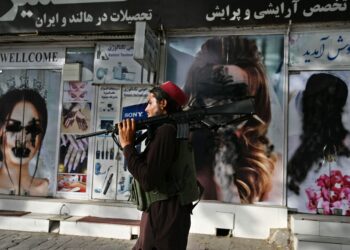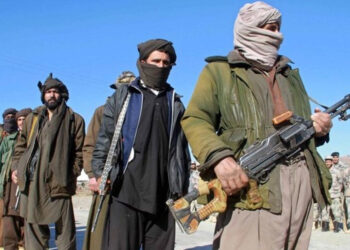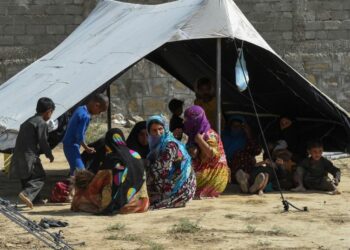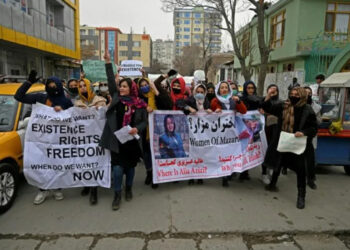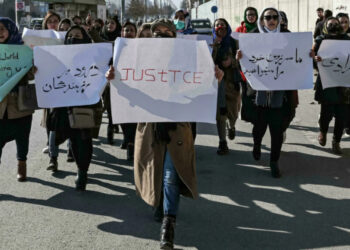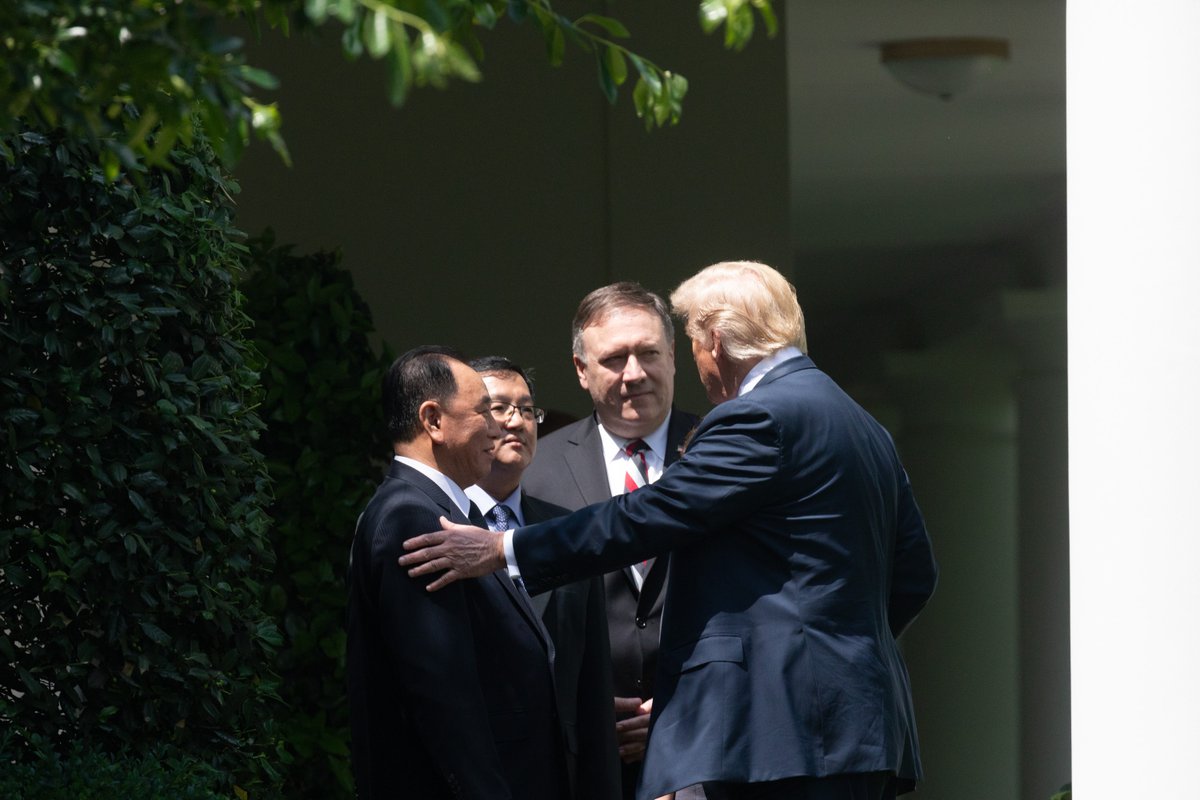The Transcending Pashtun Elites (TPEs) from the past are pulling Afghanistan backward. They have been the driving force behind the current undemocratic power arrangements in the country, which is not different from previous political structures based on the hierarchy of ethnicity.
In fact, the democracy they uphold and discuss cleverly is mock. It is somewhat corrupting even the virtue of egalitarianism, tacitly leaving it to fail so that this false belief — Afghanistan, and democracy are not compatible — prevails.
If there is one solution to all the wicked problems of Afghanistan, it is the democracy. Democratic foundations — in the absence of a tribal supremacy agenda of the state — are what Afghanistan has been deprived of since its inception.
The absence of a real democratic milieu, for all ethnic groups to fully participate in state affairs and voice their concerns when unfairly treated, has sustained the vicious cycle of ethnic superiority and inferiority throughout Afghanistan’s history. The TPEs from the past have vested interest in maintaining this status quo, and to do so, they have been mocking democracy.
TPEs’ Ethnonationalism Revelation
Afghanistan has had predominantly Pashtun rulers who sustained elitism of their tribe by offering it state privileges, including, but not limited to, tax exemptions, free land, state leadership positions, and grant of royal scholarships to study abroad, all while subjugating non-Pashtun ethnic groups.
“[P]ashtuns enjoyed institutionalized military, political, and economic dominance in Afghanistan,” Anwar ul-Haq Ahady declared in his manifesto on the TPEs in the 90s, when the “institutionalized” Pashtun “dominance” was broken in Afghanistan. It happened due to the overthrow of Dr. Mohammad Najibullah’s communist regime and the formation of a government led by late President Burhanuddin Rabbani, a Tajik scholar of Islamic studies.
Ahady, along with Ashraf Ghani Ahmadzai and Zalmay Khalilzad, belong to the generations of privileged Pashtun students who received royal scholarships to study at Western universities decades ago, when the Hazaras were deprived of rights to education at home due to the state policies. They have been the principal political analysts and academics to comment on the situation in Afghanistan and provide policy advice to the Americans, in particular, and the international community overall.
After the Taliban was overthrown, these “westernized” Afghans were brought to Afghanistan in the early 2000s. Prior to their arrival in the country, they were holding top advisory roles within the United Nations, the World Bank and the U.S. government helping to “prevent” Afghanistan from falling into the hands of “warlords” and to envision a transitional phase from post-conflict to “democracy”.
At that time, Ghani was the top advisor to Lakhdar Brahimi, the U.N. Special Envoy for Afghanistan who led the Bonn Conference in 2001, a gathering that shaped the “state-building process” of the post-Taliban Afghanistan, unfortunately, on a deceptive and mysterious trajectory from the outset. In this very gathering, 11 out of 13 delegates voted for Satar Sirat to become the Interim President of Afghanistan. However, Hamid Karzai was appointed instead because Sirat was not an ethnic Pashtun.
Soon after, the TPEs were put in key state positions to “institutionalize” their vision for a “democratic” Afghanistan. Khalilzad was appointed as the U.S. Ambassador to Afghanistan, a position believed to be the highest, given the patron-client relations between the two countries. Ahady became the Head of Afghanistan Central Bank. He was subsequently promoted to the Ministry of Finance, and the Ministry of Commerce. Meanwhile, Ghani first became the Minister of Finance, and now he is the Head of the National Unity Government.
Down to Afghanistan’s misfortunes, these TPEs misadvised the “international community” in pursuit of what they called the “reconstruction” of Afghanistan. At a juncture, Afghanistan was in need of fresh constructions based on new democratic foundations, such as “state-nation.” With the “reconstruction,” they wanted to put Afghanistan on a trajectory to reverse the old structure of hierarchy of ethnicity. Thus, they have been forcing it toward a false “nation-state” or “domination” of one ethnicity over the rest.
The word “dominance” is used more than 20 times in association with the Pashtuns in Ahady’s fairly brief article. It originated from the Latin word “dominium.” It was frequently used to compliment another frightening concept – “imperium,” meaning “empire” in English.
Even in their shallow terms, dominance means ownership or control of subjects (like a population, geography, etc.) and empire means the right or power to command such subjects. These concepts emerged in the 3 century B.C., when philosophers of the time described the Imperium Romanum, the Roman Empire. It went on to become the language of imperialism, colonialism, and slavery.
Domination is also the concern of the Darwinian concept of the “survival of the fittest.” Quite frankly, these concepts belong to dark periods of human history that no civilization would want to remember in the contemporary eon, an era of coexistence, interconnectedness, multiculturalism, human rights, constitutionalism, and non-domination.
Mock Democracy as a Mechanism for Domination
In 2004, Afghanistan was on the verge of adopting a legitimate egalitarian Constitution suitable for an ethnic heterogeneous “state-nation.” Academic and journalistic chronicles indicate that the TPEs hijacked the process and convinced the U.S. government and others to support re-adoption of the 1964 Constitution with added powers to the presidency.
The diehard push for centralization of state power was mainly to hand one ethnicity the state “ownership” to dominate others, as had been the case in old Afghan political systems.
“[E]veryone assumed that, for the foreseeable future, an elected president would be Pashtun, and, furthermore, a Pashtun approved by the U.S.”, noted Barnett Rubin, an associate of Ghani, who helped him “craft” the 2004 Constitution.
Meanwhile, a constitutional expert, Alexander Thier warned of centralization of power. “The concentration of power in the hands of one person is potentially dangerous in an unstable political situation because it increases the rewards of illegitimate capture of the presidency,” he wrote.
Since his “illegitimate capture of the presidency,” Ghani has been “dominating” others within the mock democracy in Afghanistan. He is well-connected to foreign powers to be able to sideline non-Pashtuns on the basis of warlordism, while embracing Pashtun warlords (like Hekmatyar and the Taliban) and clearing their names from the U.N. Security Council blacklist and granting them royal status in the country’s capital.
Domination of the Key State Positions
For the first time since the overthrowing of the Taliban, Pashtuns “dominate” almost all key state positions in the “Afghan” mock democracy: the President, the Chief Justice, the Attorney General, the National, Security Advisor, Minister of Defense, the Director of National Security, and even the leader of the “oppositions,” considering Hamid Karzai’s political maneuvers.
Moreover, a number of controversial letters with demeaning orders from Ghani against non-Pashtun ethnic groups have been leaked, besides bypassing the statutory census law to order the inclusion of “Afghan” as an overarching national identity in the new e-Tazkiras, a domestic identification document that has historically carried only ethnic identities. “Afghan,” a synonym to “Pashtun” in domestic usage, is already used to refer to nationals of Afghanistan abroad. Why should we push it upon non-Pashtun ethnic citizens at home?
Given the evolution of the TPEs and their conduct, all signs indicate that they are pushing for Pashtunization of Afghanistan as a false “nation-state” and Pashtun domination under the guises of democracy and “reform.” This is something tyrants had tried in the past and not only failed but also botched their patrons in Afghanistan.
Thus, the U.S. government should abandon TPEs and work with the grassroots toward real “state-nation” building, if we are to revive hope for peace and all-inclusive-real-democracy in Afghanistan.
Disclaimer: The views and opinions expressed here are those of the author and do not necessarily reflect the editorial position of The Globe Post.


